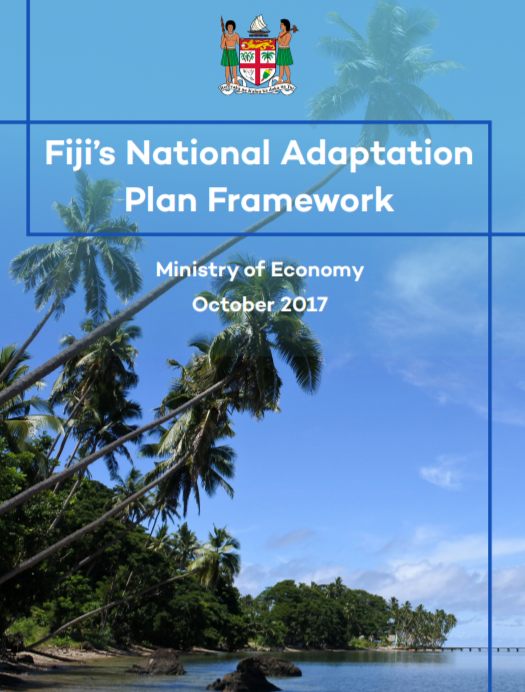In response to international commitments under the Paris Agreement and national needs, under the leadership of the Ministry of Economy, the Fijian Government has prepared this draft National Adaptation Plan (NAP) as part of ongoing efforts to comprehensively address climate change.
This NAP has been developed as a high-level strategic action document. The Fijian Government is undertaking its NAP process as a continuous, progressive, and iterative process to ensure a systematic and strategic approach to adaptation in all Government decision making, which will facilitate institutional coordination, resource mobilization, and – ultimately – effective adaptation actions.
The Climate Change and International Cooperation Division of the Ministry of Economy has taken the leading role in facilitating and coordinating the process of developing the NAP. Implementation is still seen as the responsibility of implementing entities of the Government, with the support of other Government entities and stakeholders across civil society, development partners, the private sector, as well as academic and research institutions. It is not the final step of the NAP process. There will also be the development of financing and communications strategies, as well as the creation of a monitoring and evaluation system.
This draft NAP has been created as a result of national level multi-stakeholder consultation workshops, a written feedback process, as well as key informant interviews with global and national experts, regional organisations, and national civil societal organisations. The NAP has been supported by the NAP Global Network, with financial support from the Canadian and US governments.
NAP Process to Date

The NAP process has seen five key milestones to date:
- the establishment of a NAP Framework which was endorsed by Cabinet in October 2017. The NAP Framework outlined the approaches and principles through which the NAP should be developed.
- the establishment of a NAP Steering Committee in January 2018. This is a Government constituted committee to help oversee and maintain progress regarding the development of the NAP.
- the development of the NAP Proposed Structure in February 2018. This document set out the structure of the NAP, importantly establishing five priority areas for both systemic and sectoral adaptations.
- the finalisation of the NAP Stocktake Report in April 2018. This report was a comprehensive assessment of relevant proposed measures within national level development planning documents.
- the prioritization process, held across July 2018. This was a participatory process which prioritized 10 actions for each component of the NAP. Actions were justified against the approaches and principles outlined within the NAP Framework. The criteria used to support the prioritization process were that actions for each component of the NAP had to 1) address structural causes of vulnerability, 2) integrate environmental and climate risk into existing development processes, 3) promote ecosystem-based adaptation when appropriate, 4) promote gender and human rights based approaches when appropriate, 5) acknowledge and attempt to leverage support from the private sector, 6) promote inclusive and participatory processes, 7) promote both traditional and scientific, 8) promote robust decision-making, 9) enhance management of environmental, societal, and economic trade-offs, and 10) tackle known adaptation barriers or vulnerability to environmental and climate hazards and risks.
National Consultation Workshop
This workshop serves as the final stakeholder consultation in Fiji’s NAP development process. The objective is for participants to engage with Government representatives who were leading figures in the finalization of the prioritized actions. This workshop represents your opportunity to critique the prioritized actions against the criteria and participants’ professional experience. The aim is to make any proposed changes at the workshop. Once this National Consultation Workshop has been completed and any subsequent changes made, it will be reviewed by the NAP Steering Committee before undergoing inter-ministerial and Cabinet Clearance.